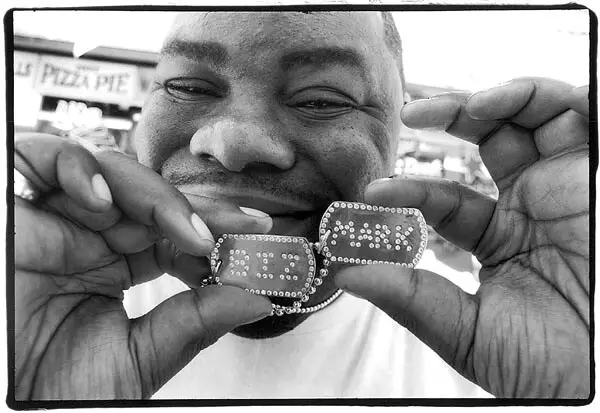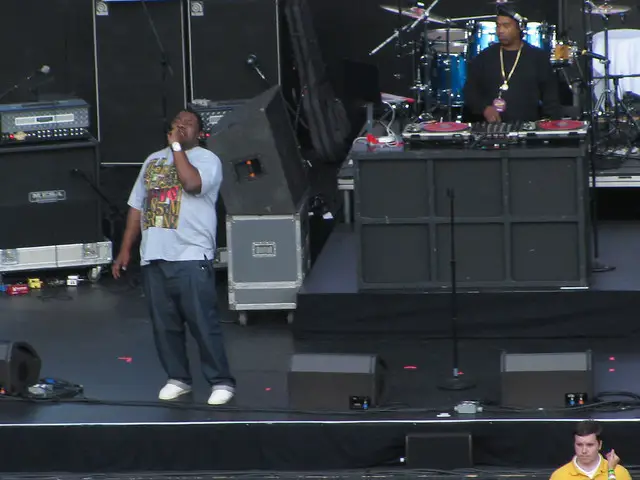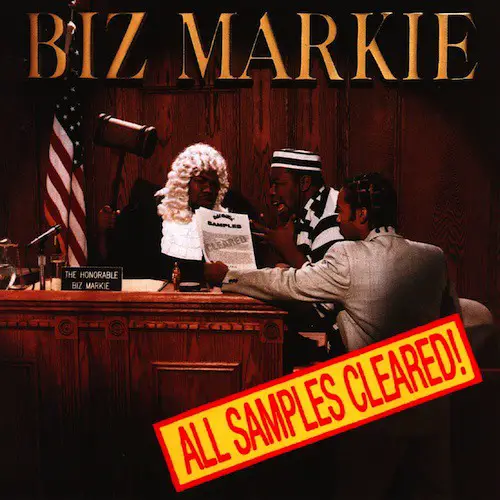We lost one of hip hop’s pioneering crossover stars on Friday, July 16. Hailed as the “Clown Prince of hip hop,” Biz Markie — born Marcel Theo Hall — was renowned for his witty story-telling, distinctive lisp, self-deprecating-ly humorous lyrics and for innovating many trends that are prevalent in hip hop today.
A New York native, Biz was born on April 8, 1964 in Harlem and raised on Long Island. Already known around the neighborhood as “Markie,” his stage name was inspired by the first hip hop tape he ever heard, as he says in a 2019 feature for the Washington Post.
My name, Biz, comes from the first hip-hop tape I heard. It was ’77, ’78, from the L Brothers. Grand Wizard Theodore was the DJ, and the rappers was Kevvy Kev, Master Rob and Busy Bee Starski. I loved Busy Bee. Busy Bee just stuck with me. My name used to be Bizzy B Markie, and after a while I put the Biz with the Markie. My nickname in my neighborhood was Markie.
Being able to witness hip hop’s primitive years quickly shaped a career path for the young Biz. An avid beatboxer and DJ, he honed his skills in Manhattan nightclubs. During the era where hip hop stars had to be all-around performers, his rhyming was the weakest part of his skillset.
That is until he began his apprenticeship under the renowned Queens hip hop collective, The Juice Crew.
When I felt that I was good enough, I went to Marley Marl’s house and sat on his stoop every day until he noticed me, and that’s how I got my start,
From there, he released an EP produced by Marley Marl of the juice crew and he began featuring on their records as well as performing at colleges in the Virginia-Philadelphia-D.C.-Maryland areas, where he began to make a name for himself.

The source of his everlasting relevance, though, comes from his 1989 smash Billboard hit “Just a Friend,” from his sophomore album The Biz Never Sleeps. It’s a love record where Biz tells the story of his relationship with a woman who denies being involved with anyone else, referring to the party in question as “just a friend.” That is until Biz indulges in his suspicions and visits her school, only to find her kissing another man.
The music video showcased Biz’s creativity, with his hilarious Mozart costume and impression the highlight. Biz remained true to himself despite the increasingly serious hip hop scene.
The record’s distinctive piano keys are interpolated from the 1968 song “(You) Got What I Need,” recorded by Freddie Scott and written by Kenny Gamble and Leon Huff. But, what truly set the record ablaze was biz’s off-key and inspired bellows about failed love.
“Just a Friend” hit 9th on the Billboard charts, and was certified platinum less than a year after its release. It was later ranked 81st on VH1’s 100 Greatest One-Hit Wonders in 2000, and number 100 on VH1’s 100 Greatest Songs of Hip Hop in 2008.
Writing in The New York Times, the critic, Kelefa Sanneh, called Biz Markie “the father of modern bad singing” and wrote:
His bellowed plea — wildly out of tune, and totally unforgettable — sounded like something concocted after a day of romantic disappointments and a night of heavy drinking.
An unlikely hit-record, Biz’s crooning should be recognized as a landmark moment in hip hop. Rappers singing on records was unprecedented and it defied logic that such discordant wails would be sonically pleasing, yet one of hip hop’s landmark moments wasn’t supposed to happen that way.

A lot of people didn’t like the record at the beginning. They would say, “Biz is trying to sing? Aw, the record is wack.” But I wasn’t supposed to sing the [chorus]. I asked people to sing the part, and nobody showed up at the studio, so I did it myself.
Although he never reached the same commercial success, he kept making history. His 1991 album, I Need a Haircut made the rounds under more controversial circumstances. Biz and his label were sued by representatives of the Irish singer-songwriter Gilbert O’Sullivan, who said eight bars of his 1972 hit “Alone Again (Naturally)” were sampled without permission on Biz Markie’s “Alone Again.”
A judge ruled in favor of the plaintiff and ordered for $250,000 in damages to be paid out and barring further distribution of the album. That ruling would help set a precedent in the music industry by requiring that even small chunks of sampled music — a cornerstone of hip-hop aesthetics and studio production — be approved in advance. A market for sampling clearance took hold, which remains a key part of the economics behind hip-hop.
It’s beautiful because it means all eyes ain’t on me, so when I pop up they appreciate everything they see. It’s like the McRib sandwich. It’s like the flowers outside that turn white on the bushes. It comes around when it’s getting ready to be springtime. You appreciate it, Biz said of his role as one of hip hop’s unsung heroes.
He returned in 1993 with, All Samples Cleared!, but it would be his last project on a major label. While some try to diminish his stature within history by labeling him as a one-hit-wonder, his sustained cultural relevance is a testament to his talent and innovation and the general appreciation that fans have for him by keeping his likeness alive.

The weirdest thing about my fame is that when I’m thinking that it’s almost over it just sparks back up. I made “Just a Friend” in ’89. Some people’s records die — it sprouts up. Now it’s 30 years later and it’s sprouted up again in commercials. They’re not letting me die. The public, the fans, they like me around.
Biz Markie


Comments are closed.